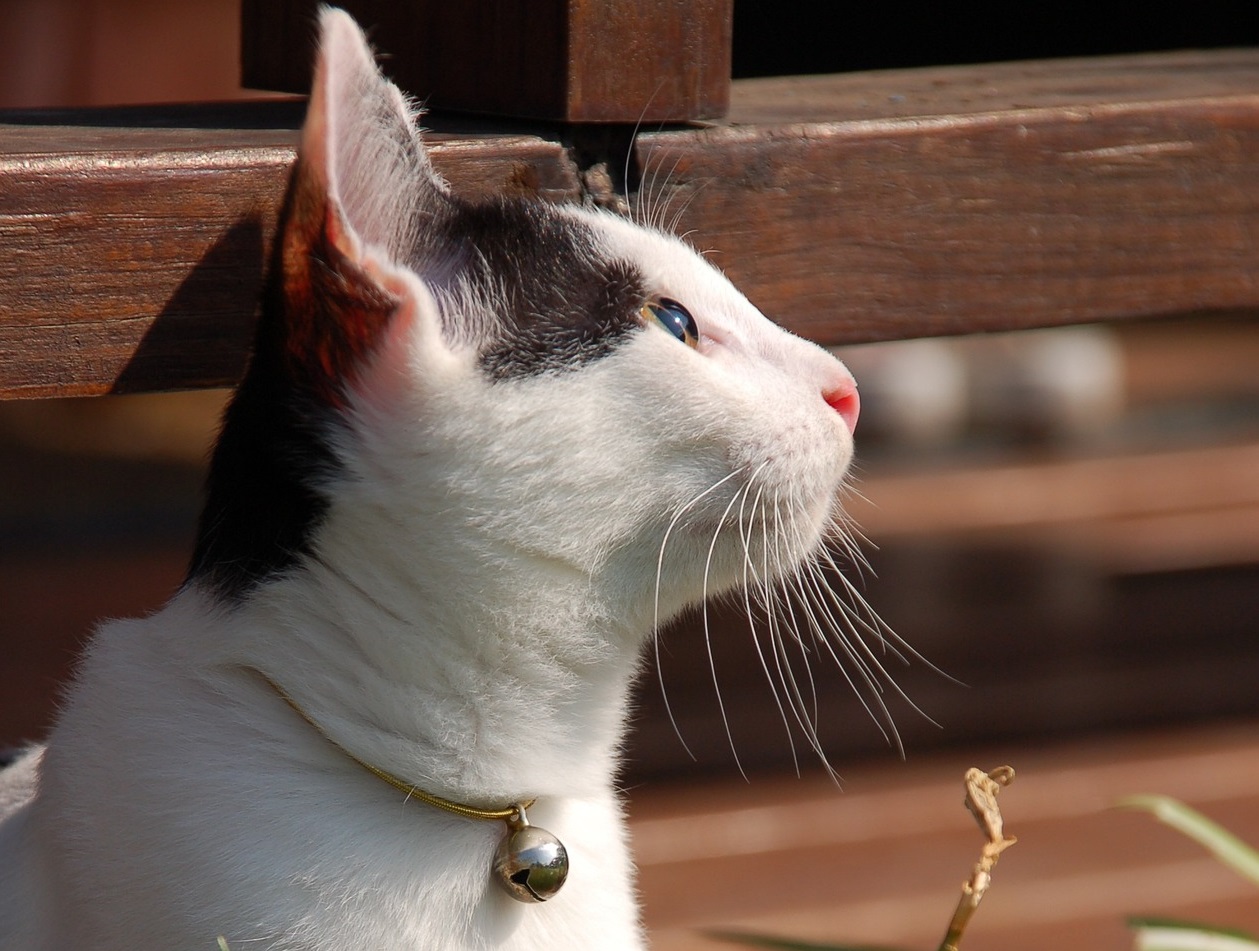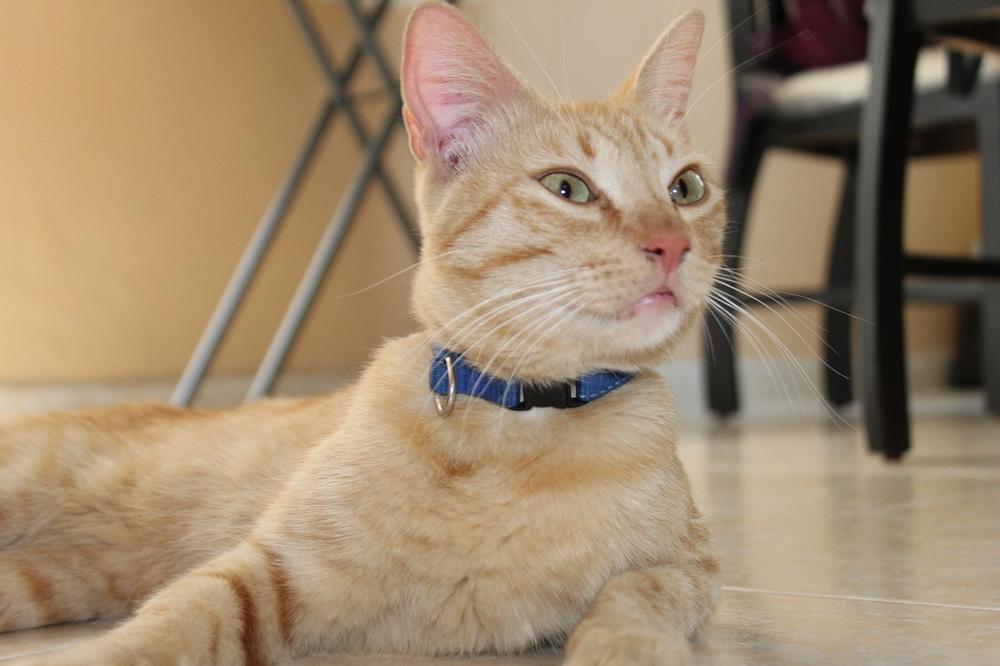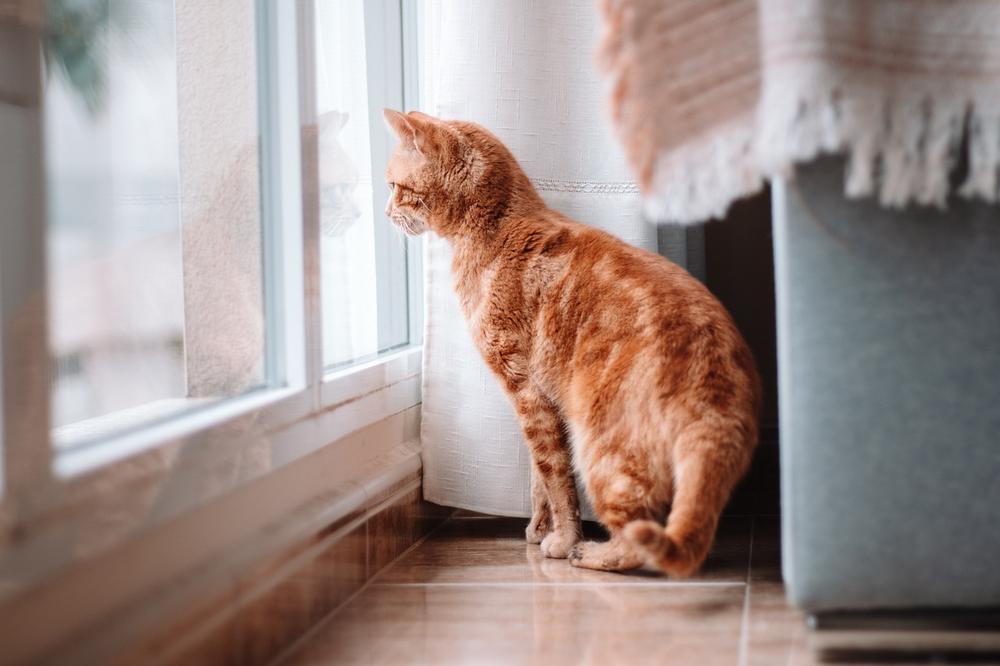Do Cats LIKE or HATE Having Bells on Their Collars?

Stuck wondering whether to bell or not to bell?
Curious if your feline friend will appreciate the jingle or despise the tinkle? 😺
I feel ya.
You're concerned about tracking your cat's whereabouts without sacrificing their freedom.
You might be thinking, "Will it be too intrusive? Could it affect their natural instincts?"
Let me tell you, we've been there.
But fear not, fellow cat enthusiasts!
Together, we'll dive into the fascinating realm of feline collars and uncover the truth about our furry companions' affinity for bells.
So let's untangle this mystery, shall we?
Are Bells on Cat Collars Recommended?
Consider what's best for your cat's comfort when choosing a bell
Now, let's dive into the great debate of whether bells on cat collars are recommended or not. But first, think about what would make your furry friend happy.
If you decide to add a bell to their collar, go for a small and light one. You don't want your cat to feel uncomfortable or annoyed by a big heavy bell.
Nobody likes a grumpy cat!
It all depends on what works for you and your cat
Adding a bell to your cat's collar is like picking your favorite flavor of ice cream (even though cats probably don't care about that).
It's completely up to you and depends on several factors.
Think about your cat's personality. Is your little furball an adventurous explorer who loves climbing trees?
Or are they more of a homebody who prefers lounging indoors?
Make a decision based on their natural behavior and surroundings.
Your lifestyle matters too. Do you live in a busy city with lots of cars whizzing by?
Or do you reside in a quiet neighborhood?
Consider the potential risks and choose accordingly.
The advantages and disadvantages of collar bells
Let's quickly discuss the pros and cons (without being too generic).
One good thing about having a bell on your cat's collar is that it helps you locate them when they're being sneaky ninjas around the house.
No more surprises under the bed or behind the curtains!
On the other hand, bells might spoil your cat's stealth mode while hunting imaginary or real prey outdoors.
If your cat likes bringing you gifts from their outdoor adventures, the noisy bell might alert potential prey and decrease their chances of success.
The choice is yours, my friend. Think about what your cat needs, weigh the pros and cons, and make the best decision for your feline companion.
But bear in mind, cats are independent creatures with minds of their own, so they might have some thoughts on the matter too!
But let's not forget about the safety aspect!
You have to consider the potential risks before deciding on a bell collar.
Are Bells on Cat Collars Safe?
Here are 10 tips to make sure your cats stay safe with bells:
- Remember, it's usually better for cats to not wear collars at all.
- But if you do choose a collar, go for one that easily breaks away so they don't get stuck.
- Don't use breakaway collars when walking them on a leash - opt for a harness instead.
- If you want something fancy, handmade collars sometimes have removable brass bells.
- Look for bells that have smooth, rounded shapes to avoid any chances of snagging on things.
- The sound from these bells is around 50 to 60 decibels, which won't hurt your cat's ears.
- Kittens can wear bell collars too, just make sure they have anti-choking features.
- But be cautious if there are big predators around - assess the safety of your cats in those areas.
- While some cats may find the bells stress-inducing, the soft sound won't actually harm their hearing.
- And never forget to closely watch your cats when introducing or using bell collars.
Keeping your furry pals safe should always be your top priority! 😺

And now, let's explore how you can help your cat get used to the sound of a bell collar and potentially reap its benefits!
Do Cats Enjoy the Sound of Bells on Their Collars?
If you're wondering whether cats enjoy the sound of bells on their collars, here are 8 things to bear in mind:
- Introduce the bell collar gradually.
- Start with short periods of wearing the bell collar.
- Allow your cat time to acclimate to the unfamiliar sound.
- Some cats may initially find the bell unsettling.
- Most cats do not inherently enjoy the sound of bells.
- Gradual introduction can be beneficial after they are used to a collar.
- Over time, their brain may start ignoring the sound of their own bell.
- This can make them less responsive to similar sounds around them.
With that being said, every cat is unique and may have different reactions.
If your cat shows signs of distress or discomfort, you need to prioritize their well-being and consider removing the bell collar.

Ultimately, it's up to you to decide if a bell collar is suitable for your furry friend.
However, if you're still uncertain about whether cats truly enjoy the sound of bells on their collars, I invite you to explore my article, Do Cats Like Collars or Hate Them.
In this comprehensive guide, I offer valuable insights and information to help you understand the preferences of our furry friends towards wearing collars.
Discover the fascinating world of feline preferences and make an informed decision about your cat's collar.
The Impact of Bells on Cat Behavior
| Impact of Bells on Cat Behavior | Additional Considerations |
|---|---|
| Provides Warning Signals | Bells on cat collars can alert nearby wildlife of the cat's presence, reducing the chances of surprise encounters. |
| Reduces Territorial Fights | The sound of the bell can deter other cats from entering the cat's territory, minimizing conflicts. |
| Minimizes Aggression in Multi-Cat Households | Cats wearing bell collars can be easily tracked by other cats, reducing the potential for aggressive behaviors. |
| Alternative Methods for Nervous or Reactive Cats | Nervous or reactive cats may experience stress from the sound of the bell. Alternative methods, such as using scent-based deterrents or interactive toys, can help reduce hunting behaviors. |
Catering to individual preferences is crucial when it comes to introducing a bell on your cat's collar.
You ought to recognize that not all cats will respond in the same way to the presence of a bell.
So, what should you do?
Well, pay attention and observe your cat's behavior.
This way, you can determine if they prefer silent alternatives, like bright visual markers on collars.
However, here's a juicy bit for you:
Putting a bell on a bully cat's collar can actually have a positive impact on their behavior!
Yes, that's right!
The bell acts as a warning signal for other cats, allowing them to seek safety and avoid any nasty conflicts.

It's kind of like giving notice that someone already called dibs on the territory.
And let me tell you something else.
This is especially valuable in multi-cat households.
You see, bells can alert gentler cats to the presence of more dominant ones, which helps reduce aggression.
It’s like having your own little peacekeeper.
How cool is that?
With that being said, you need to take into account that not every kitty will be thrilled about the sound of bells jingling around.
Indeed, nervous or reactive cats might experience stress or anxiety due to the sound. In these cases, there are alternative methods you can try out.
For instance, modifying your cat's diet and engaging in mock-hunting play can be pretty effective when it comes to reducing hunting behaviors.
The important thing is that you find what works best for your furry friend.
So, keep an eye on their behavior, make adjustments accordingly, and explore different options until you find just the perfect fit.
The Effect of Bells on Cat Collars on Wildlife
When it comes to protecting wildlife from cats' hunting instincts, bells on collars can make a difference. Here are some unique bell design variations that can help deter prey:
- Double bells: A double bell system creates a layered sound that is more noticeable to wildlife.
- Jingle bells with charms: Adding small charms to jingle bells creates an even more distinct sound, catching the attention of potential prey.
- Electronic bells: These bells emit a high-pitched sound that animals find particularly startling and effective as a warning signal.
The purpose of these bells is to give small prey animals a chance to escape. By using variations in bell designs, you increase your chances of success.
On top of that, consider alternative solutions like Birdsbesafe covers.
These brightly colored collars act as visual warnings to birds, further reducing the impact cats have on ecosystems.
Whether through bells or other methods, we can all take steps to minimize our cats' impact on wildlife populations.
Let me break it down for you: Further down the blog post, I will discuss the potential drawbacks of bells on cat collars. You ought to keep reading for a well-rounded understanding of this topic.
And it gets even more interesting when we consider the potential benefits and drawbacks of using a bell collar for your cat's safety and well-being.
Curious to know how it can affect their behavior and interaction with other animals?
Let's dive in and explore the fascinating world of cat collars and their impact...
Can Bells on Cat Collars Help Locate Lost Cats?
If you have a mischievous cat and always worry about losing them, putting a bell collar on them might just be the answer to your prayers.
I mean, who wouldn't want a little jingle that helps you find your furry friend whenever they decide to go on an adventure?
Choosing the right bell for your cat's collar is key.
You want something unique, so it stands out from all the other noises around you.
Think of it like creating a personal jingle just for your feline buddy.
With a distinctive sound, you'll easily identify and locate your lost cat by following the charming jingle.
This is particularly useful if you have a big house, sprawling garden, or if your cat decides to climb a towering tree. You'll be able to start the search without wasting any time!
But bells aren't only helpful outside.
They can also make a huge difference inside your home, especially if you have kittens running around.
By attaching a bell to their collars, you'll always know where these little daredevils are.
You can relax, knowing they're not getting into trouble or putting themselves at risk.

Plus, keeping track of their whereabouts becomes a breeze.
And let's not forget about the cats that tend to hide or need regular vet visits.
A bell on their collar provides added peace of mind in these situations.
You'll always know where they are, even if they're busy playing hide-and-seek.
Now, let me be clear, bells are not a foolproof solution. You must consider other identification methods as well. Microchipping, for example, should be seriously considered as a reliable form of identification.
It ensures that even if their collar goes missing, there's still a way to be reunited with your beloved cat.
So, if finding your cat quickly and easily sounds like a dream come true to you, think about adding a bell to their collar. Just remember to choose one with that distinct jingle and embrace the peace of mind it brings.
But what about the potential drawbacks and concerns surrounding bell collars?
Is it really worth it to put a bell on your cat's collar?
Let's explore the other side of the debate and delve into some controversies and alternatives.
Hint:
It may not be as clear-cut as you think...
The Potential Drawbacks of Bells on Cat Collars
When it comes to bells on cat collars, you should consider a few things.
First, the sound of the bell could attract bigger predators like coyotes or foxes to your outdoor cat.
This can be dangerous for your furry friend.
Some cats might find the constant jingling annoying or uncomfortable, and there's also a small risk of the bell causing choking or injury if it gets caught.
Using a bell on your cat may interfere with their natural stealth and hunting abilities since it hinders their instincts.
There's an ongoing debate about whether using bell collars on cats is ethical.
Some argue that it restricts their freedom and compromises their mental well-being.
But remember, these concerns may not necessarily happen in every situation.
The chances of encountering these issues are relatively low.
If you're looking for alternatives to bell collars, here's what you can consider:
- Keep your cat indoors: By doing so, you eliminate the need for a collar altogether, keeping them safe.
- Try bright colored bib collars: These make your cat more visible, offering another way to enhance their safety.
- Consider declawing (for indoor cats only): Though controversial, declawing can prevent scratching and reduce the need for collars.
- Helpful for disabled cats: Bells can be useful for cats with disabilities to alert others and avoid harm.
In the end, you have to evaluate the potential drawbacks against the benefits before deciding if a bell collar is right for your cat.
The Final Verdict on Bells and Cats
Key Takeaways:
- It's up to the owner to decide whether to put a bell on their cat's collar.
- Breakaway collars are safer to prevent cats from getting stuck.
- Bell collars should only be used for identification, not for restraint or leash-walking.
- The sound produced by the bell is not harmful to cats' hearing.
- Cats can gradually adjust to the sound of the bell if introduced slowly.
- Bell collars can help prevent conflicts and territorial fights among cats.
- The bell can reduce hunting behaviors and protect wildlife.
- Bells on collars help locate kittens, prevent accidents, and keep track of cats.
- Use judgment and consider the cat's sensitivity level when using a bell.
- Alternative options to bell collars include indoor cats, bib collars, and declawing (with caution).
And that wraps up today's article.
If you wish to read more of my useful articles, I recommend you check out some of these: Can I Leave My Cat Alone for a Weekend, Can a Cat Ride in a Car Without a Carrier, Why Do Cats Watch You Poop or Pee, and Why Does My Cat Meow When I Pick Her Up
Talk soon,
-Sarah Davis